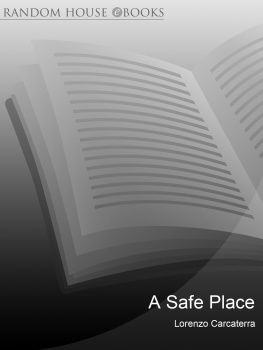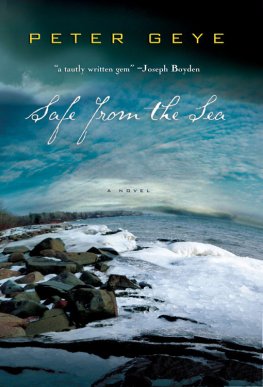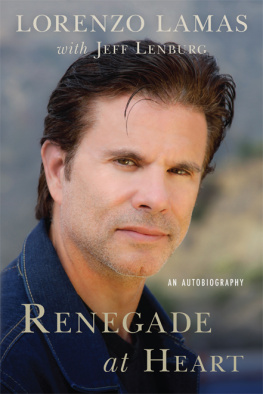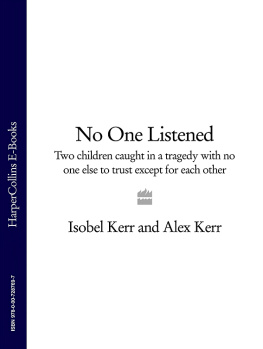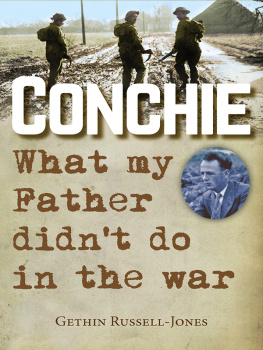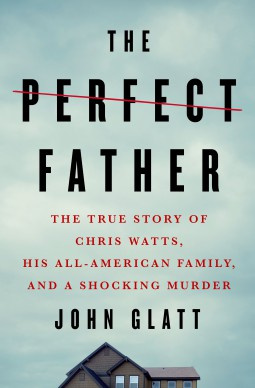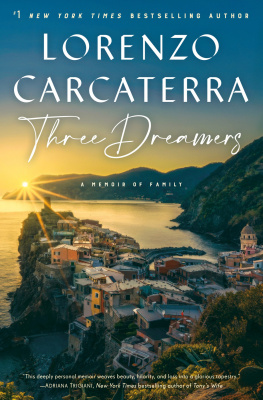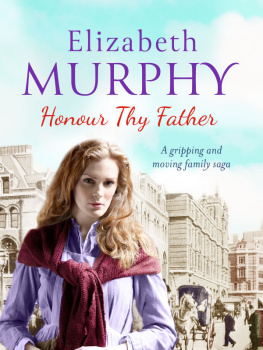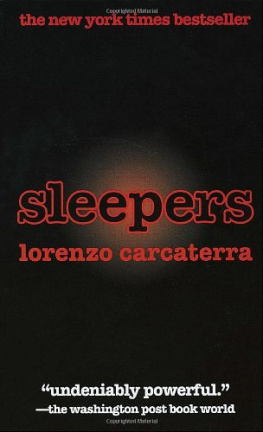Contents
About the Book
At the age of fourteen Lorenzo Carcaterra made a shocking discovery. Behind closed doors he and his mother survived the erratic, violent outbursts of his father. A powerful man, he tempered his rage with affection. To a young boy he was a man to both love and fear. Until Lorenzo learned a shattering fact that forever changed his life. His father was a murderer.
About the Author
Lorenzo Carcaterra was born in New York where he still lives. He was a reporter on the New York Daily News before he wrote A Safe Place. His second book, Sleepers, became a bestseller on both sides of the Atlantic, and his first novel, Apaches, was published this year.
Also by Lorenzo Carcaterra
Sleepers
Apaches
ACKNOWLEDGMENTS
There are several dozen people whose help enabled me to finish my fathers story, their memories providing pieces of the family puzzle. For their separate reasons, they have asked to remain anonymous.
I am grateful for the storytelling abilities of both my parents, thankful for the small details they added to each tale and for the time they gave to my many questions.
Thanks to David Hirshey for first planting the idea; to Jay Lovinger and Peter Bonventre for nourishing it as a Life magazine article; and to Jim Gaines for publishing it.
Thanks also to Loretta Fidel for seeing beyond the story, and to the dynamic duo of Adam Berkowitz and Amy Schiffman for their intelligence and care. Thanks to Irene Webb for her words of cheer and keen insights.
Thanks to Peter Gethers for being the dream editor all writers look for, and to Stephanie Long, who never tired of answering every one of my questions, even the dumb ones.
There are many others, from Pete Hamill, who took the time long ago to encourage a New York Daily News copyboy, to Dick Burgheim, who taught his Time, Inc., writers to keep it short and sharp, and to Jack Sanders, who told me to always write, no matter how painful.
A big thank-you to William Diehl, a friend from the heart, and to my blood brother Eugene Izzi.
Another big thank-you to Sonny Grosso and the crew at Top Cops especially Liz Wagner and Johnny Garage who helped in more ways than they know.
Thanks to Mr. G for a heart as big as the Hudson, to Laurie Prencipe for taking care of business, and to Hank Gallo for always being there.
Thanks to my daughter, Kate, for putting up with me during the months I worked on this book and to my son, Nick, for the smiles he gave when the going was less than easy. Thanks to my wife just for understanding.
Also, thanks, Cicco, Bam-Bam, Big Dan, Bobby, Paolo and Little T. Dont have to tell you why. See you at the feast.
A Safe Place
Lorenzo Carcaterra

BOOK ONE
I TOLD YOU ONCE, RYAN, IF ONLY ONE GETS OUT ITS A VICTORY.
Trevor Howard to Frank Sinatra in Von Ryans Express.
BOOK TWO
IVE LEARNED, MR. GITTES, THAT AT ANY GIVEN MOMENT IN HIS LIFE, A MAN IS CAPABLE OF ANYTHING.
John Huston to Jack Nicholson in Chinatown
BOOK THREE
THE DEAD DONT DIE. THEY LOOK ON AND HELP.
D. H. Lawrence
BOOK FOUR
THE PAST IS NOT A PACKAGE ONE CAN LAY AWAY.
Emily Dickinson
I
THE FIRST CLOSED fist landed just below my mothers jaw. The second hit flush against her upper lip. The blows force bounced her head off the bedroom wall. My father raised his right arm, ready to strike again. His left arm was stretched out, his hand clutching chunks of my mothers apron and housedress. His eyes were wide open and filled with rage, his face the color of chalk.
My mother stood helpless, waiting for the next painful shot. Her legs were buckled, both knees rubbing each other, as one black slipper hung off her foot. A thin stream of red blood moved from her nose to her chin, and tears flowed from both her eyes.
The right side of her face was already starting to swell. Her dark-tinted glasses, opened and shattered, rested between her chest and my fathers left arm. The next blow landed over her right eye, raising an immediate welt. My father was all that kept my mother from falling to the floor.
He stared hard at her face, the anger starting to dissipate from his body. His muscles began to relax, a natural redness returning to his fleshy cheeks.
Dont fuck with me, puttana, he said to my mother. If I see you talking to him again, Ill cripple you. Nobody is gonna talk about me behind my back.
He just stopped to say hello, my mother said to him in Italian. His sister and I were close friends. His ship is in port for a few days and he knew I lived close by. He was bringing news from home. Thats all. I swear. Thats all.
Did you go with him? he said, still holding a strong grip to her dress and apron. Did you, you fuckin bitch?
My mother, her English still weak, shook her head, confused by the question.
No, she said. No. I didnt go anywhere with him.
My father looked down at his wife, took a deep breath and spit in her eyes. He turned and tossed her face down on the bed behind him.
Im gonna go see my mother, he said. Have dinner ready when I get back.
My father walked past me, rubbed my head, kissed me on the forehead and headed out the front door of our three-room cold-water tenement apartment.
It was four-thirty on the afternoon of January 9, 1956. My mothers thirty-fourth birthday. I was two years and three months old, sitting atop an old steamer trunk that doubled as both playpen and bed, holding a discarded box of Ronzoni No. 9 spaghetti. Watching my father beat my mother is the earliest memory I have of my parents together.
My parents first met on the island of Ischia in the summer of 1938.
Italy was then in the sixteenth year of Benito Mussolinis dictatorial rule and enjoying an economic revival. Overall, prices were low, the lira strong and work available in abundance. Resort islands such as Ischia and Capri were thriving, with hotels filled to capacity and beaches packed with sun-hungry tourists.
Though talk of a possible world war made many of the islanders nervous, the sight of so many visitors eager to spend vacation money on their shores helped ease the tension.
Ischia was such a safe place to be then, my grandmother Maria once told me. The thought of war was in the distance, something for politicians in Rome to fight over. In Ischia, as in all of Italy, it was a time for peace.
My parents were first cousins. They were introduced to each other by their aunt Nanella, oldest sister to my fathers mother, Raffaela, and my mothers father, Gabriel.
My mother, also named Raffaela, was sixteen at the time. She was of short-to-medium height, with thick and curly dark hair, full red lips and a shy smile.
My father, Mario, was twenty-one and visiting Italy for the first time. His face was expressive and handsome, his body boxer hard and his dark brown hair beginning a slide toward baldness. He had been on the island less than a week and was already boasting to strangers and friends of having ruined three girls.
My mother wiped her hand nervously on the side of her light blue skirt and shook my fathers extended hand. My father leaned down and awkwardly kissed my mother on both sides of her face. He smiled when he saw her blush.
Next page
